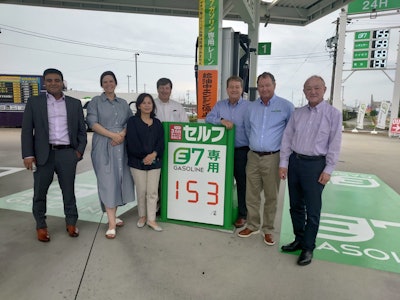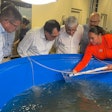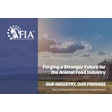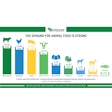
Nearly 100 industry stakeholders recently gathered for the U.S. Grains Council’s (USGC) 2024 Corn and Ethanol Conference in Tokyo, Japan. The event aimed to enhance relationships between U.S. producers, agribusinesses, and Japanese importers by sharing information on crop progress and the sustainability benefits of U.S. corn and ethanol.
The Council’s delegation was led by USGC Japan Director Tommy Hamamoto and included key figures such as USGC Director of Global Ethanol Export Development Mackenzie Boubin, USGC Senior Manager of Global Ethanol Market Development Ankit Chandra, Commonwealth Agri-Energy General Manager Mick Henderson, Illinois Corn Marketing Board Former Chairman and USGC At-Large Director Jim Reed, and Iowa Corn Growers’ Association Director Dan Keitzer.
“Japan is an extremely important market for U.S. ethanol, and it’s exciting to consider how much it could still expand because of rising demand for automobile fuel ethanol and sustainable aviation fuel (SAF),” Boubin said.
Before the conference, the Council’s team met with staff from the U.S. Department of Agriculture’s Foreign Agricultural Service (USDA’s FAS) and Japan’s Ministry of Economy, Trade and Industry (METI) to coordinate future events and strengthen the robust trade relationship between the two countries. The group also met with representatives from two leading automobile manufacturers to discuss their implementation of ethanol and how the U.S. industry can help meet their goals.
Erica Summe, agricultural attaché at the U.S. embassy in Tokyo, gave the opening remarks at the conference. Her speech was followed by presentations on the low carbon impact of U.S. corn and ethanol and updates on corn and distiller’s dried grains with solubles (DDGS) production.
Hamamoto spoke about the Council’s Corn Sustainability Assurance Protocol (CSAP), which promotes environmentally friendly practices of U.S. producers and gives U.S. goods a competitive advantage with climate-conscious consumers.
“Attendees were interested to learn about the CSAP and the information it provides to importers and end-users about how U.S. farmers sustainably grow corn,” Hamamoto said. “The remarkable efficiency of U.S. producers, from planting cover crops to conservative tillage, contributes to the carbon reduction capabilities of U.S. ethanol that is so appealing to Japan and many other markets.”
The conference highlighted the commitment of both U.S. and Japanese stakeholders to sustainable agricultural practices and the potential for expanding the use of U.S. ethanol in Japan, particularly in the automobile and aviation sectors.

















